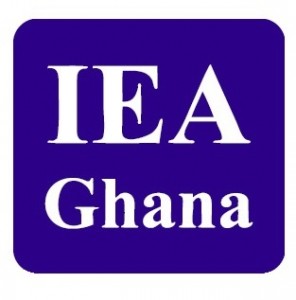IEA proposes constitutional provisions and reforms to ensure fiscal discipline
 The Institute of Economic Affairs (IEA) Ghana is proposing constitutional provisions and reforms to ensure fiscal discipline in an ongoing constitutional review process it has initiated.
The Institute of Economic Affairs (IEA) Ghana is proposing constitutional provisions and reforms to ensure fiscal discipline in an ongoing constitutional review process it has initiated.
The Institute proposes amendments to some sections of the constitution and additional provisions to entrench fiscal discipline and macroeconomic stability.
Speaking at an IEA Constitutional Review Series, Dr John Kwakye, the Director of Research IEA Ghana, said fiscal discipline and macroeconomic stability are important prerequisites for sustained growth of the country.
He was speaking on the theme, “Institutionalising Fiscal Discipline and Macroeconomic Stability for Sustained Growth in Ghana: The Constitutional Pathway.”
He said additional clauses should be added to the economic objectives of the constitution to include requiring state to promote fiscal discipline and economic stability and annual fiscal deficit of government not exceeding 3 per cent of Gross Domestic Product (GDP).
He explained that the 3 per cent deficit ceiling shall only be varied by the Minister of Finance in case of stated conditions and with the approval of Parliament.
“Government borrowing to finance the budget deficit should be restricted to capital expenditure only. This is a prudent condition practiced by countries such as the UK (United Kingdom), which ensures that loans are used only for productive, rather than consumption, purposes,” he said.
Dr Kwakye also proposed that the National Development Planning Commission (NDPC) be made independent or converted into Ministry of Economic Planning with the mandate to formulate long term development plans that bound all governments.
He added that, “many countries have separate ministries of Finance and Economy such that the former focused on the budget and the latter on economic planning.”
The IEA Ghana also proposed the addition of a clause under Article 24 to provide for a Parliamentary Budget Office that will undertake independent evaluation of government budget and fiscal policy, monitor implementation, assess cost estimates of project and programmes, among others.
Dr Kwakye highlighted the need to tighten loopholes in Article 178, 179 and Article 181 which respectively state the need for Parliamentary approval for expenditure and withdrawal from public funds and the approval for all loans contracted.
“If Parliament approved loans for certain purposes and they are diverted for other purposes, it should be able to demand answers from the Minister.
“We want a debt ceiling of 60 per cent of GDP, which has become a rough international threshold for sustainable debt,” he said.
The IEA among other things proposed additional clauses to ensure the Central Bank lends to the Government up to 5 per cent of previous year’s and no rights for exploiting resources are granted on concessional basis but rather on product sharing basis.
Source GNA
